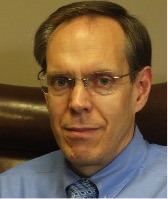 by Dr. Steven Snook, Ph.D., special for ADOTS Connections.
by Dr. Steven Snook, Ph.D., special for ADOTS Connections.
The Clergy Health Initiative at the Duke Divinity School conducted survey research and found that pastors experienced rates of depression that were double (11.1 percent) that of the general population (5.5 percent). Anxiety rates were 13.5 percent for pastors and seven percent of clergy reported experiencing both depression and anxiety.
Clergy face extraordinary stress in their work in addition to the high expectations they often place on themselves. They face multiple emotional demands each day dealing with people and their problems. For instance, grief counseling, dealing with competing groups within a congregation, delivering sermons weekly while facing criticism from parishioners are emotionally demanding. Clergy often are faced with a roller coaster of emotions in a single day. They may go from counseling a couple on the brink of divorce, visiting sick and dying congregants in hospital, to conducting a joyous occasion such as a wedding. Pastors face long hours, may feel unappreciated or unsupported. Additionally, budget pressures, inadequate finances, and debt may add to the load. The laity’s perception and expectation that clergy have it all together may create a felt need to appear perfect limiting transparency.
Over time clergy become vulnerable to burnout and isolation. Their personal and families needs may take a back seat to the demands of ministry. They may experience a sense of guilt that as spiritual leaders that they are experiencing low moods, discouragement and worry. Overtime, greater vulnerability to depressive episodes and anxiety may erode the pastors’ effectiveness.
The consequences may be subtle or more significant but can be dealt with through appropriate prevention and intervention.
Clergy who intentionally and actively engage in self-care will be more effective in dealing with the emotional demands of ministry. Maintaining a life/work balance and practicing common sense habits consistently overtime will yield positive results.
For instance regular physical exercise has been shown to be helpful in dealing with depression and anxiety. Practicing proper sleep hygiene is beneficial in recovering from the stress of the day. Consistent time off each week, hobbies and a regular vacation are important for maintaining your mental health and effectiveness in ministry. Peer support is valuable in providing like minded individuals to talk about issues and reduce the sense of isolation among clergy.
Maintaining appropriate boundaries between work and your personal life limits burnout and becoming overextended. Recognizing your limitations and be willing to enlist other’s assistance in areas that may not be your strength is key to insure that your effort is being maximally effective. Prioritizing one’s own marriage, family and needs is not selfish but critical for your mental health and well-being. Taking the time for your own spiritual growth through contemplation, reading, and prayer will allow you to be renewed.
If you find that your own efforts at self-care are not sufficient don’t hesitate to seek professional assistance. Problems addressed sooner rather than later have a greater likelihood of being addressed efficiently and successfully.
Talking about your stress and emotions with a trained mental health professional may be beneficial in recovering from the stress of ministry. Therapists may help you learn cognitive techniques to manage depression and anxiety while helping you to gain new insights into your vulnerabilities. Medication may also be needed especially if depression is persistent or severe.
Recognize that asking for help is not a sign of weakness but rather using the means we have available to help restore the joy in your life and work while preserving your effectiveness in ministry.
Pastors who practice positive mental health model this behavior for their congregants and may enhance the psychological well-being of their church.
Learn more about Dr. Snook’s practice at www.assessmentandcounseling.com.

